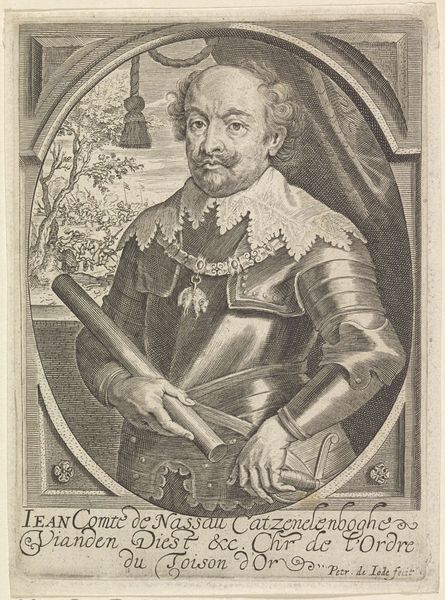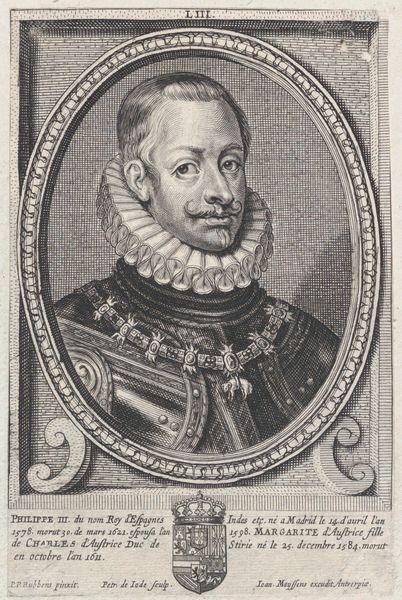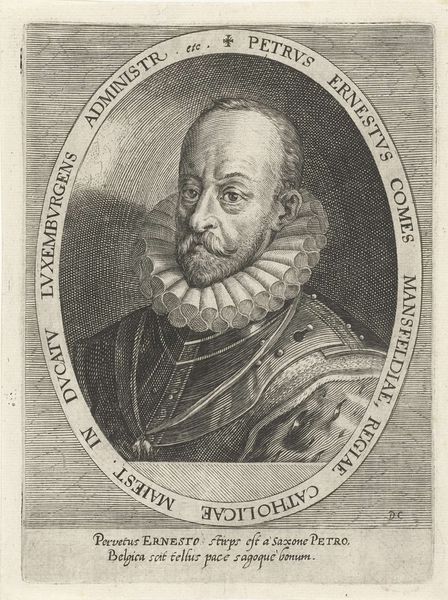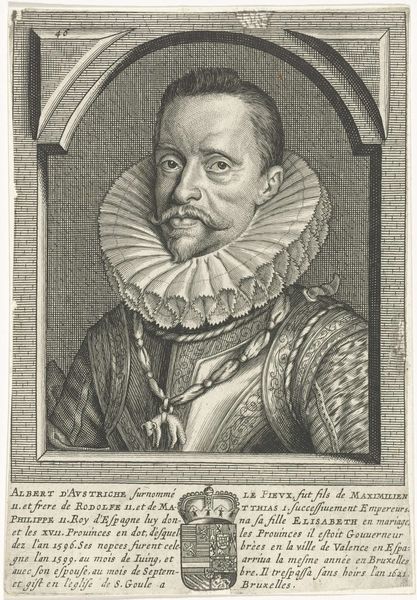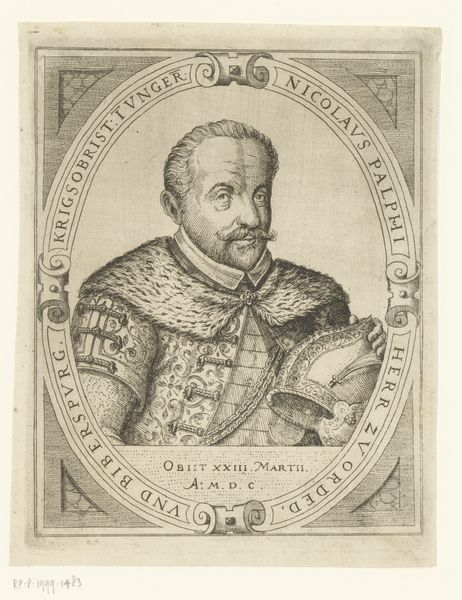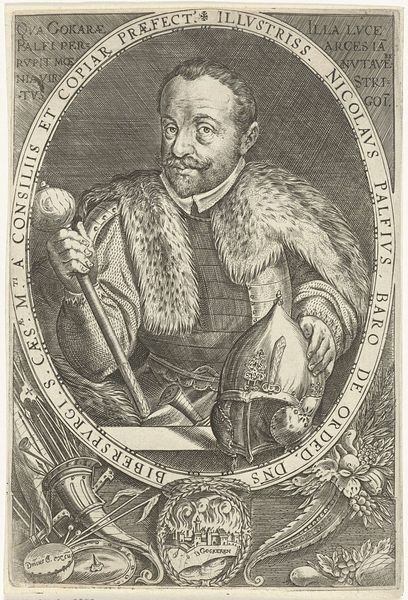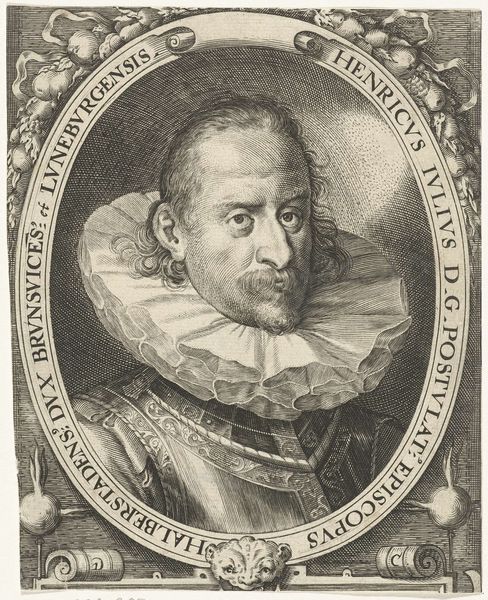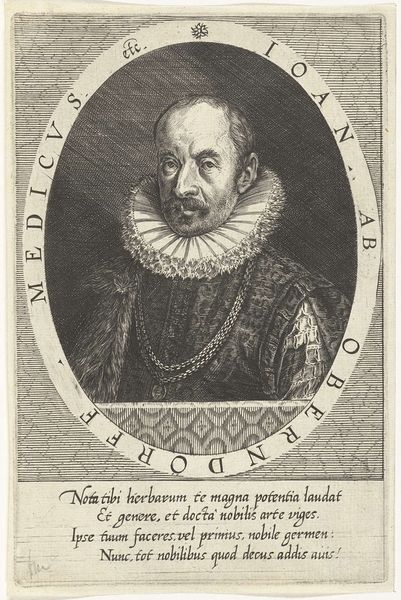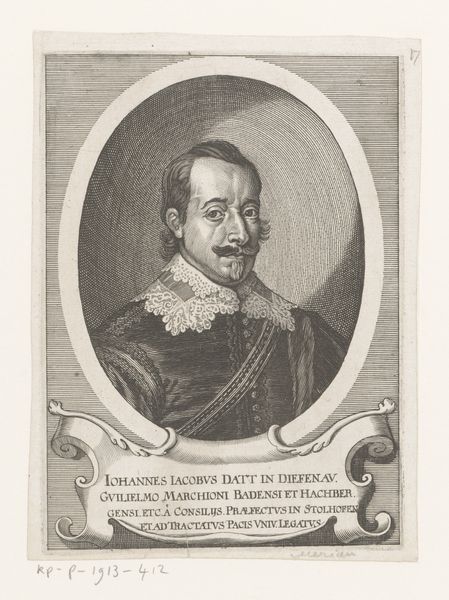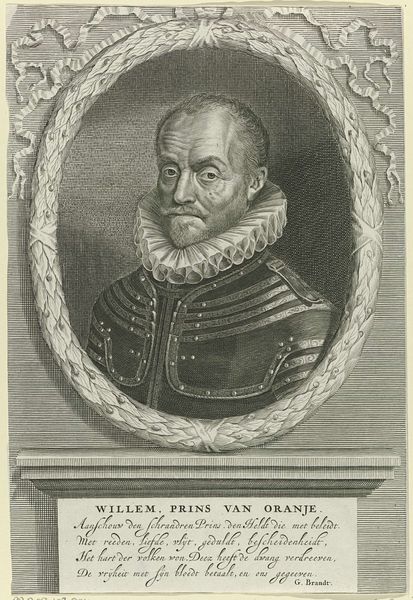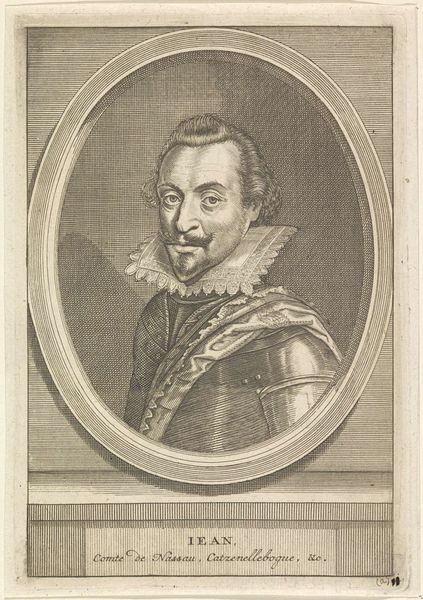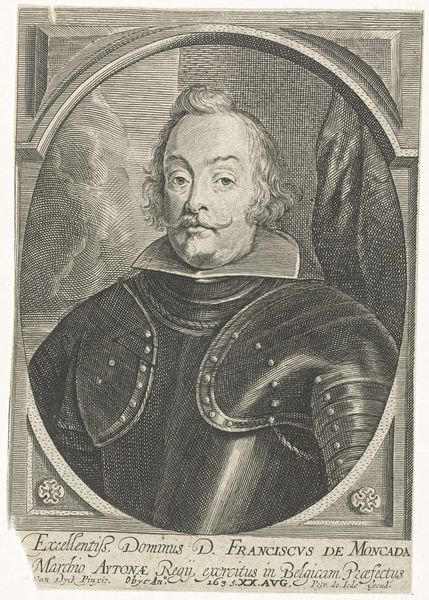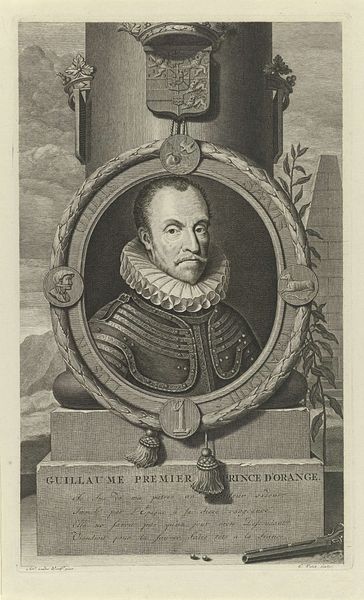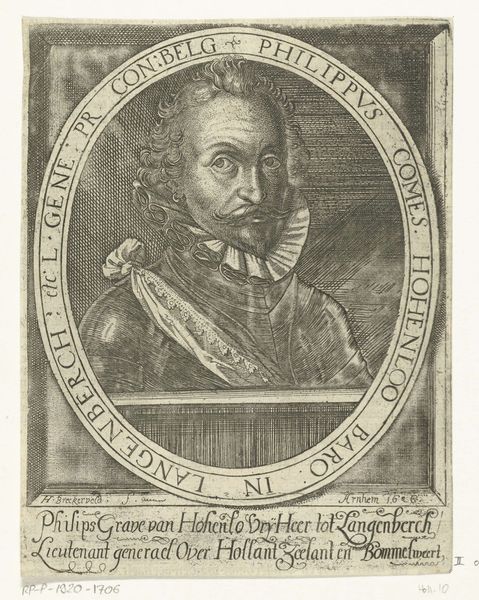
engraving
#
portrait
#
baroque
#
portrait image
#
history-painting
#
engraving
Dimensions: height 153 mm, width 113 mm
Copyright: Rijks Museum: Open Domain
Pieter de Jode the Younger made this print of Gustav II Adolf, King of Sweden, sometime in the 17th century. It's an engraving, a medium that allowed for the mass production and distribution of images. Prints like this one played a crucial role in shaping public perception of political figures. Consider the visual codes at play. The King is depicted in armor, a symbol of military strength and authority. The inscription emphasizes his power and status. This image emerges from a Europe embroiled in religious and political conflict. Sweden, under Gustav Adolf, was a major player in the Thirty Years' War. Prints like this weren't neutral records; they were instruments of propaganda, designed to project an image of a powerful and divinely sanctioned ruler. To understand this print fully, we can consult period documents, letters, and political pamphlets to reconstruct the context in which it was made and consumed. Art history isn't just about aesthetics; it's about understanding the social and political forces that shape what we see.
Comments
No comments
Be the first to comment and join the conversation on the ultimate creative platform.
